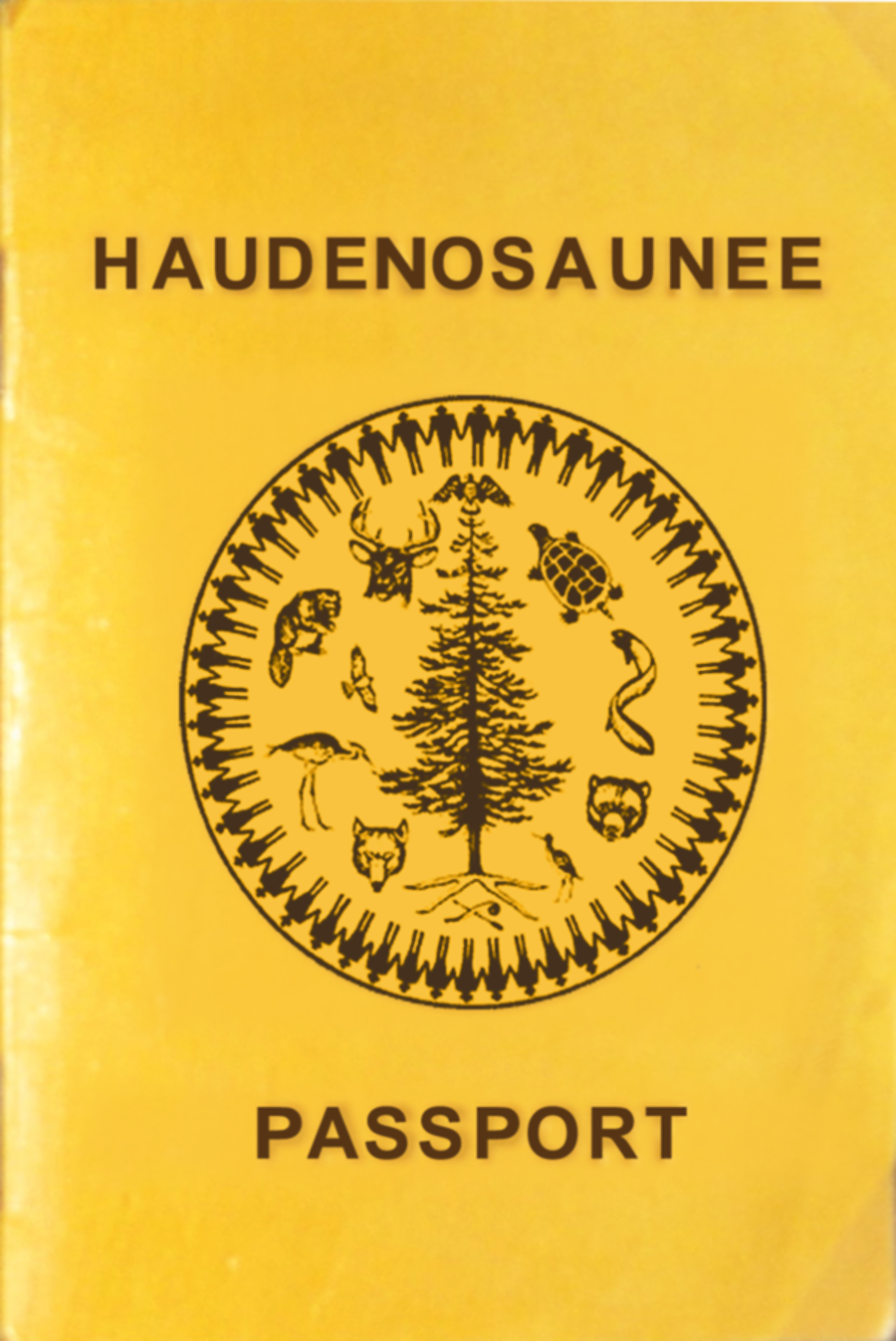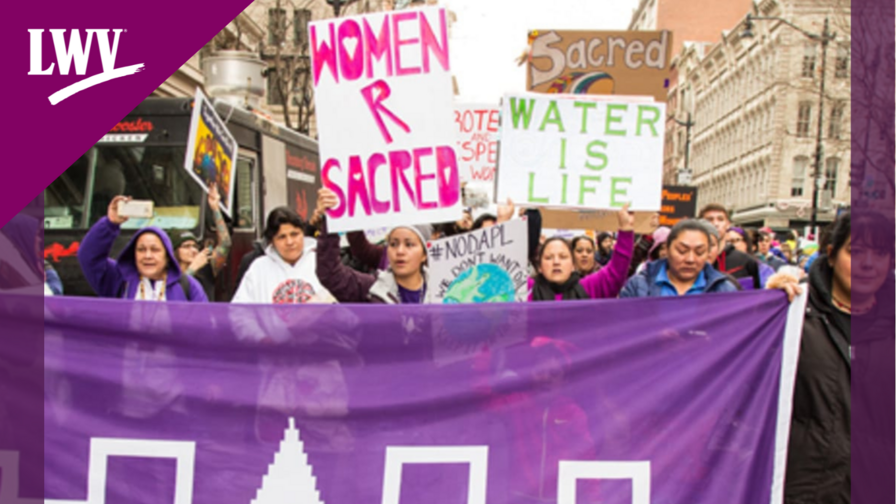How Native American Women Inspired the Women’s Suffrage Movement
November is Native American Heritage Month – a time to honor and celebrate the traditions, contributions, and accomplishments of our Native communities.
This month we want to acknowledge the Native women of the Six Nations Haudenosaunee Confederacy — members of the Seneca, Cayuga, Onondaga, Oneida, Mohawk, and Tuscaro nations, known collectively as the Haudenosaunee. Many don’t know that the Native women of Haudenosaunee played a vital role in the women’s suffrage movement. Their way of living — equal participation in their government and societal roles — heavily influenced the movement’s early stages. However, it’s important to note that Native women were actively excluded from the movement, which largely focused on the welfare of the white middle class.
The Haudenosaunee’s History of Gender Equality
For over 1000 years, Native Nation women have had a political voice in their tribal communities – a right that white women had only received 100 years ago.
The Six Nations Haudenosaunee Confederacy, to this day, is a society based on female authority that empowers women to maintain their identities and rights to their bodies, property, political voices, and children. Historically, Haudenosaunee women have controlled their nation’s economies, handled property concerns, and participated in all decision-making processes. While chiefs tend to be male, Haudenosaunee women oversee their election.

Notably, Haudenosaunee women hold both the power to elect a chief and to remove him if he is found guilty of murder, theft, or sexual assault. “Justice [is] largely served by women,” and men who have been charged with sexual assault are not only disqualified from holding office but also face serious punitive action.
Where equality wasn’t historically present, the Haudenosaunee women fought for it. In the seventeenth century, Haudenosaunee women staged one of the first known feminist rebellions on the continent, using their authority over familial and agricultural life to gain veto power over all wars. Their success gave them equal voices in matters of defense, a field that, even in the contemporary US, is largely male-dominated.
When colonialists arrived and began interacting with Indigenous people, they were troubled to find Haudenosaunee women negotiating treaties, and asked that they be removed from interactions. However, unlike in European cultures, where women rarely had rights to their own property, Haudenosaunee women had to approve any negotiation involving land.
Haudenosaunee Women’s Influence on the Suffragists
Leaders of the women’s suffragist movement, like Elizabeth Cady Stanton, Matilda Joslyn Gage, and Lucretia Mott were heavily influenced by the powerful roles Native women played in Haudenosaunee communities.
In 1848, Lucretia Mott and her husband visited the Seneca people, where they experienced firsthand how political power was shared equally among everyone in society. When Mott traveled back to New York, she shared stories about her experience and how Native women played important roles in their communities.
Stanton likewise noted that “the women were the great power” in their societies and among many Native communities “the descent of property and children were in the female line.” This was in stark contrast to the position women held in Eurocentric communities and demonstrated that an alternate form of society was possible.
Matilda Josyln Gage was also influenced by the Haudenosaunee’s matriarchal forms of power. She wrote that “the modern world [is] indebted for its first conception of inherent rights, natural equality of condition, and the establishment of a civilized government upon this basis” to the Haudenosaunee. Gage was also an advocate for Native Americans’ rights and frequently criticized the US government for disenfranchising its indigenous people.
The realities of the Haudenosaunee women and their social, political, and economic forms of power inspired visions of what other women might gain, inspiring the blossoming suffragist movement.
Ongoing Discrimination Against Native Women
Despite the enormous impact Native women had on the suffragist’s goals and ideals, they were explicitly excluded from the movement.
Early suffragists made an explicit choice to exclude Black and brown women from their work and prioritize the rights of white women alone. As a result, when the 19th amendment was finally ratified, Native women still lacked the right to vote.
In 1924, the Indian Citizenship Act granted US citizenship to Native Americans, but since Congress allowed each state to choose who had the right to vote it took another forty years for Native Americans across the US to obtain the right to vote.
To this day, Native American voters are still limited from accessing the ballot. That’s why it’s crucial that we pass legislation like the John Lewis Voting Rights Advancement Act, which would protect voters against discriminatory practices.
How to Help
We encourage you to use this time to acknowledge the land history of indigenous nations and raise awareness on the ongoing challenges Native people continue to face.
Here are some resources you can use to learn more about the challenges Native communities face and how to be a better ally:
- Learn and acknowledge what Native land you’re living on!
- Watch this conversation with Native Americans on Race
- Learn more about how the Native American vote continues to be suppressed
- Tell your Senators to stand against racial discrimination by supporting the John Lewis Voting Rights Advancement Act
- Follow Native American activists like YoNasDa LoneWolf, Sarah Eagle Heart, and Anthony Tamez-Pochel on social media
The Latest from the League
Native Americans, the first people to inhabit the area now known as the United States, have tragically been disenfranchised for much of the nation’s history.
League of Women Voters of the US Board President Dr. Deborah Ann Turner issued the following statement in response to the Senate’s first floor vote on the John Lewis Voting Rights Advancement Act.
Though their work styles are vastly different, each of these women made our country a fairer, more just place.
Sign Up For Email
Keep up with the League. Receive emails to your inbox!
Donate to support our work
to empower voters and defend democracy.





